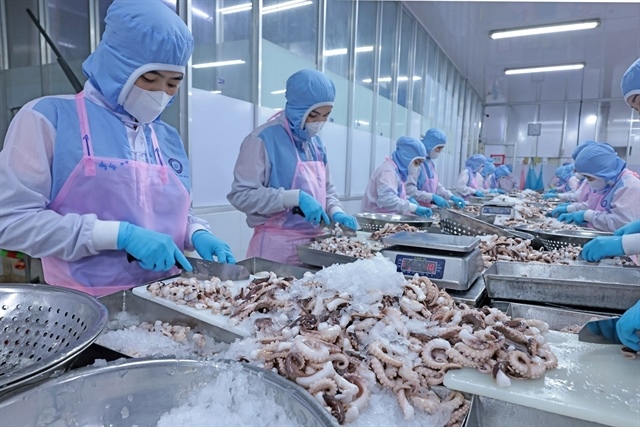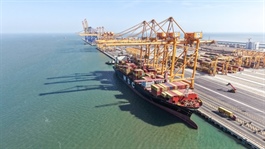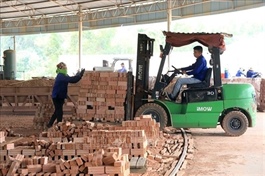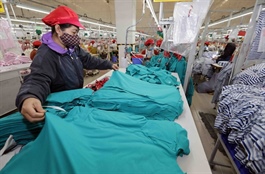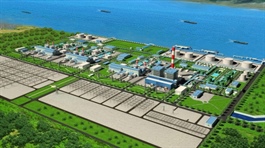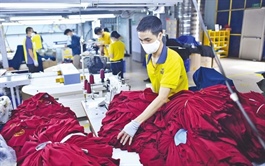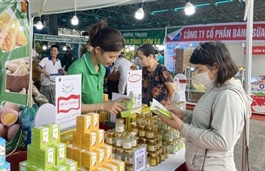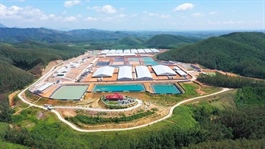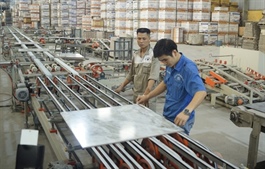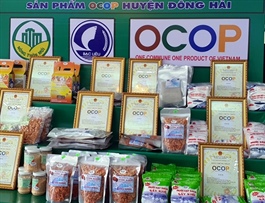Pharma players tackle tariff impacts
Pharma players tackle tariff impacts
Pharma companies involved in Vietnam are making more strategic moves to ease potential impacts in the face of US tariff threats.
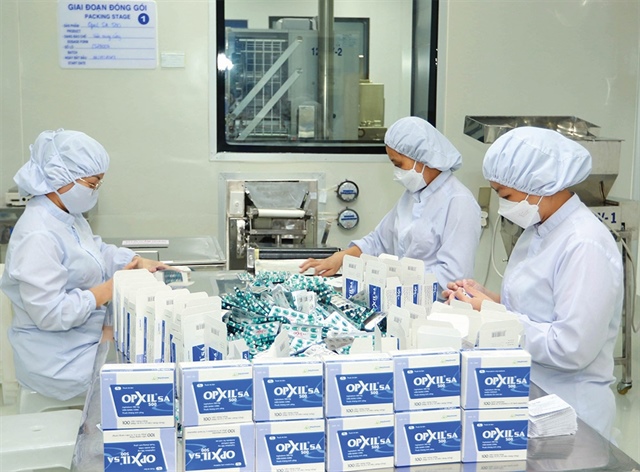
Increased production costs will lead to higher prices of drugs, in Vietnam and elsewhere, photo Le Toan |
Sandoz is concerned about the domino effect on affordability and patient access if certain US tariffs go ahead. They risk exacerbating supply issues and increasing drug prices, affecting manufacturers, distributors, healthcare providers, and ultimately, patients, the company said.
The United States in April launched an investigation to determine whether imports of pharmaceutical products and ingredients pose a national security risk to the US. The investigation will lay the foundation for tariffs on pharmaceutical products and ingredients, which are expected to be announced soon.
In recent months, the president has threatened to impose a 25 per cent or higher tariff on foreign-made pharmaceuticals. This has been causing a headache for multinational corporations in the industry.
Charaf Eddine Kadri, general director of Sandoz Vietnam, told VIR, “In Vietnam, the impact is two-fold. Local companies face challenges in maintaining competitive pricing and expanding their reach, while foreign-invested enterprises must navigate complex global supply chain disruptions and cost increases.”
For many Vietnamese patients, who often pay out-of-pocket for their medicines, these are not abstract economic issues - these cost pressures directly affect access and affordability, Kadri said.
“But the consequences go beyond individual households. As medicine costs rise, Vietnam’s healthcare system must reassess its planning and resource allocation, potentially delaying or limiting public health initiatives aimed at expanding access to essential treatments,” he added.
According to industry insiders, modern pharmaceutical supply chains represent decades of optimisation and global integration. These new tariffs may essentially force a rapid reconfiguration of these intricate networks, with real consequences for medicine availability and affordability.
Pharma expert Hai Ngo explained, “A typical medicine might incorporate specialised ingredients from multiple countries, undergo manufacturing processes across several facilities, and pass-through numerous quality control checkpoints before reaching patients. When tariffs introduce significant cost increases at multiple points, maintaining both affordability and reliability becomes extraordinarily challenging.”
If the US imposes tariffs on imported drugs, production costs will increase along the entire pharmaceutical value chain, Ngo added.
“Increased production costs will lead to higher prices and reduced profits in Vietnam and worldwide. This could lead to reduced production and supply disruptions, affecting patients,” Ngo said.
In response to the developments, Sandoz in Vietnam is reinforcing partnerships with local distributors and healthcare providers to safeguard continuity of supply.
“We diversify the supply chain by setting up a task force to monitor disruptions and implement targeted actions to maintain steady supply of essential medicines, while bolstering partnership with key stakeholders in the healthcare system such as with the Ministry of Health, key hospitals, regulatory authorities, local distributors and diverse partners,” Kadri said.
Sandoz Vietnam is also continuously implementing tools to absorb some of the tariff-induced expenses without compromising on product quality or accessibility.
“We believe that accelerating adoption of biosimilars is a powerful way to reduce pressure on healthcare in this complex context,” he added.
Elsewhere, Roche is said to plan to invest $50 billion in the US over five years with new and expanded/upgraded manufacturing as well as research and development facilities. The company is working to mitigate potential impacts from tariffs by moving production of its medicines to the US and petitioning the White House for an exemption.
“Things can change quite quickly,” said a source from Roche. “But for us as a company, it’s always important that we are prepared for all scenarios.”
Meanwhile, Novartis plans to invest $23 billion in US sites. The Swiss company said that it plans to build six new manufacturing plants, some of which will make raw pharmaceutical ingredients, as well as a new research and development site in California.
According to Novartis, the new sites and extensions will be built over the next five years and are expected to create more than 1,000 jobs for skilled workers like engineers and scientists as well as another 4,000 support staff and construction jobs.
- 08:41 11/06/2025






